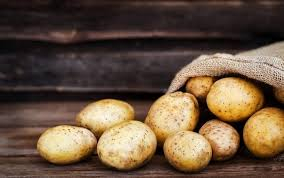The Ministry of Agriculture and Livestock (MoAL) in Bhutan is venturing into untapped markets in Nepal and Bangladesh to enhance the export of potatoes from the country. This strategic move aims to expand export destinations, mitigate price fluctuations impacting local potato farmers significantly, and diversify Bhutan‘s agricultural trade portfolio.
Key Points:
- Potato Production and Decline: The Integrated Agriculture and Livestock Census of Bhutan for 2022 reported a notable decrease in potato production, from 38,573 metric tonnes in 2021 to 31,146 metric tonnes in 2022, marking a 19% decline. Regions like Wangdue, Paro, and Bumthang experienced reduced harvests during the year.
- Market Challenges and Solutions: Amid concerns raised by a Member of Parliament regarding diminishing potato growers and production, proposals for establishing local auction yards and attracting a wider range of buyers to foster a competitive market environment were put forth. The Ministry plans to enhance the online auctioning system, integrate Artificial Intelligence technologies for operational efficiency, and provide timely market insights to stakeholders.
- Export Statistics and Infrastructure Development: Bhutan witnessed a substantial increase in potato exports in 2022, reaching 11,736 metric tonnes valued at Nu 194 million, reflecting a 91% growth in both volume and value compared to the previous year. The country is expanding its cold storage infrastructure, with two new facilities in Zhemgang and Samtse nearing completion. Additionally, the establishment of a potato integrated facility in Gangtey, Wangdue, and upcoming warehouses in Chumey, Bumthang, and Khaling, Trashigang, will further support the potato industry.
- Future Initiatives: Plans for an agri-food economic hub in Sarpang to facilitate the export of various commodities, including potatoes, are underway. Bhutan aims to enhance its agricultural competitiveness, improve storage capabilities, and bolster market access for its agricultural products.
- Price Dynamics: Factors influencing potato prices in Bhutan include production levels in neighboring Indian states, storage expenses, and consumer demand. Recent trends show fluctuations in auction prices, with large potatoes dropping from Nu 27 to around Nu 20 per kilogram within a short period.
- Innovation and Sustainability: Efforts to introduce climate-resilient potato clones through international collaborations demonstrate Bhutan‘s commitment to enhancing agricultural practices and building resilience against environmental challenges.





